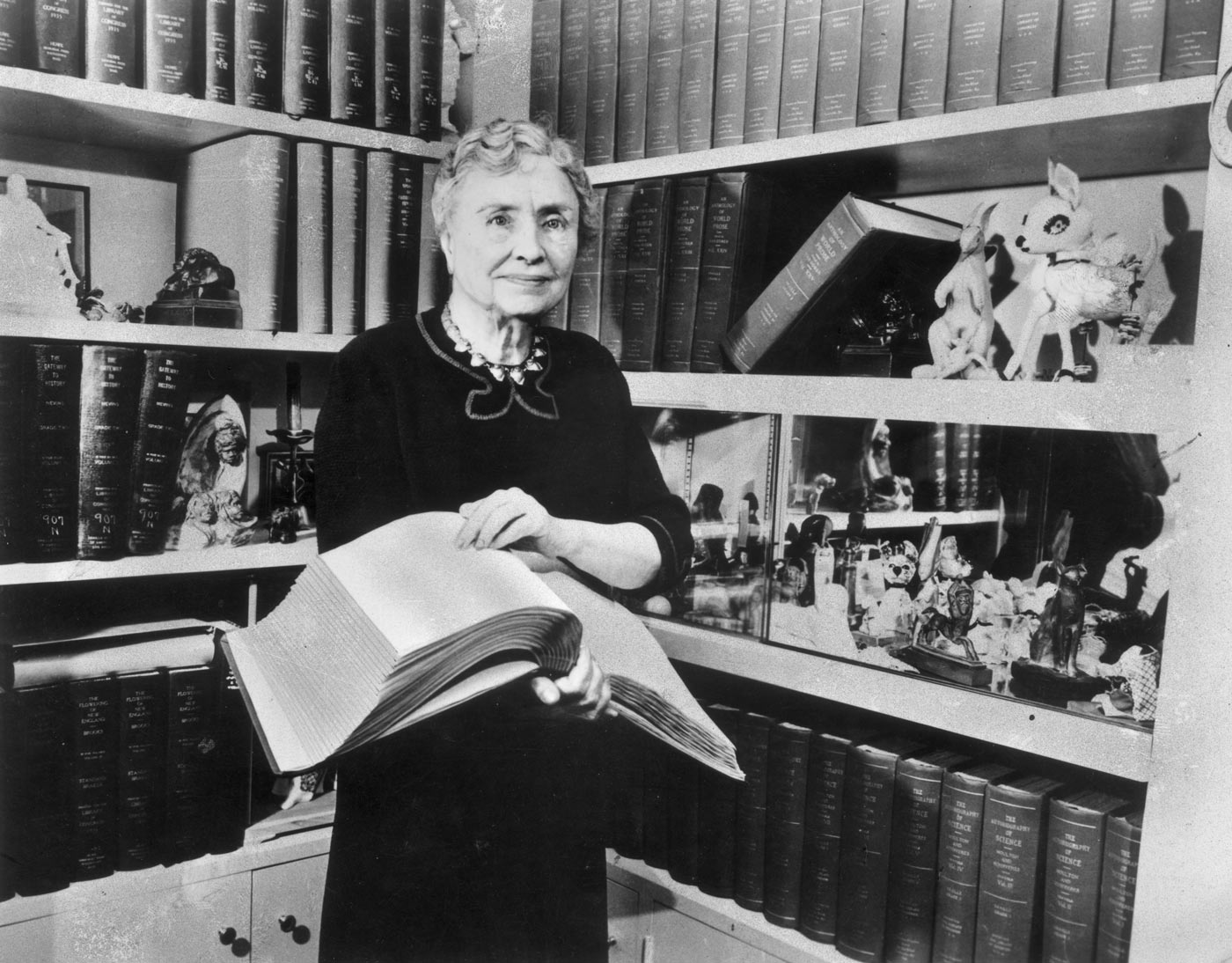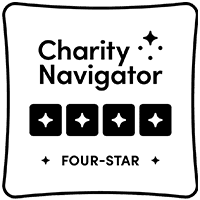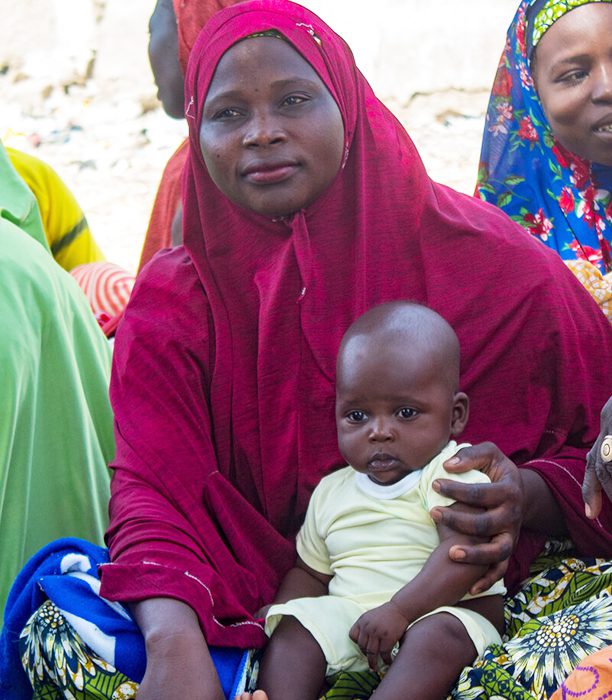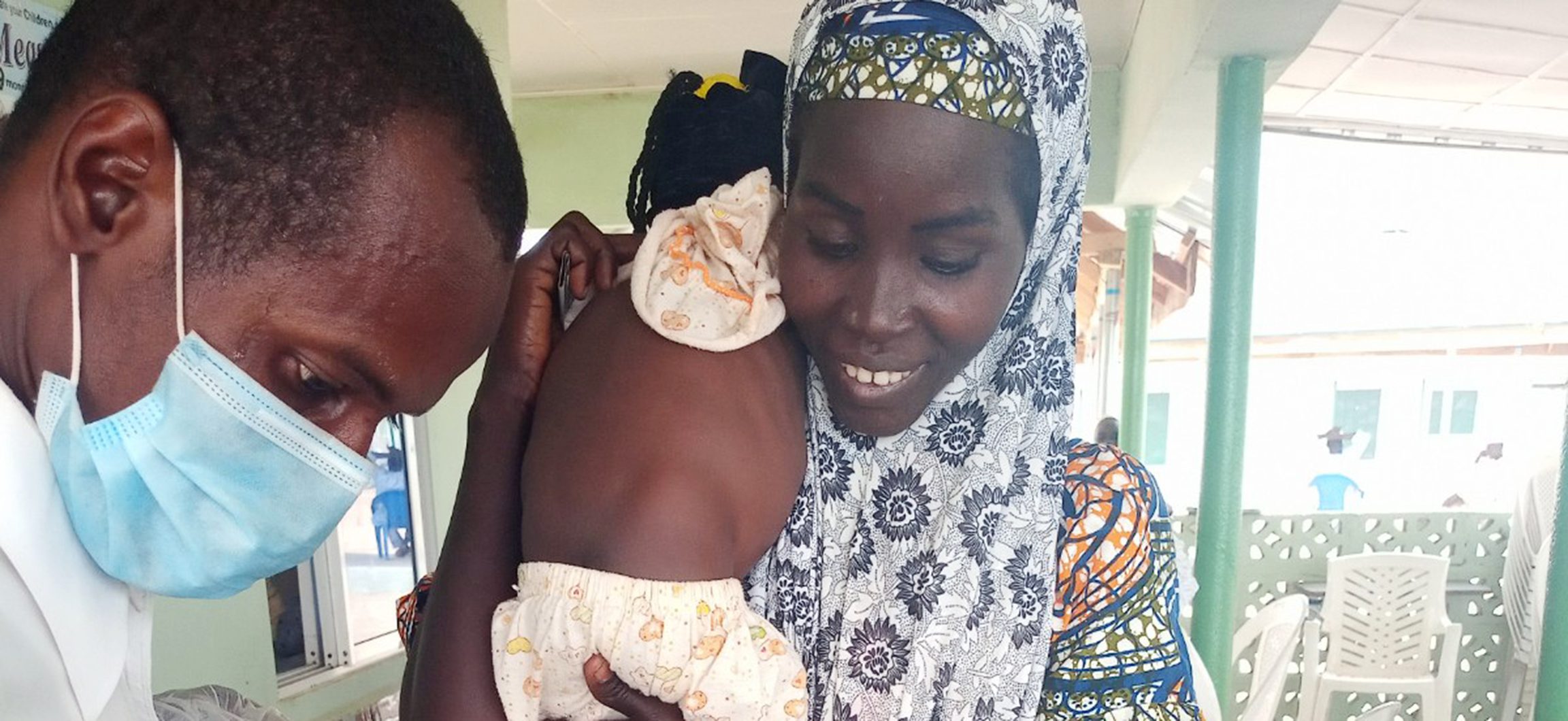
New Potential for Malnourished Children in Northern Nigeria
Just months ago, the future of Ramatu’s 29-month-old daughter Adama was all but inevitable. Weighing just over eight pounds and severely malnourished at 29 months old, her prospects for survival were slim.
“I was seeing her as a dead child because she was so emaciated and had no strength to eat or play like other children,” said Ramatu of her baby. Luckily, a new future for Ramatu and Adama came just in time.
“I was seeing her as a dead child because she was so emaciated and had no strength to eat or play like other children.”
Ramatu
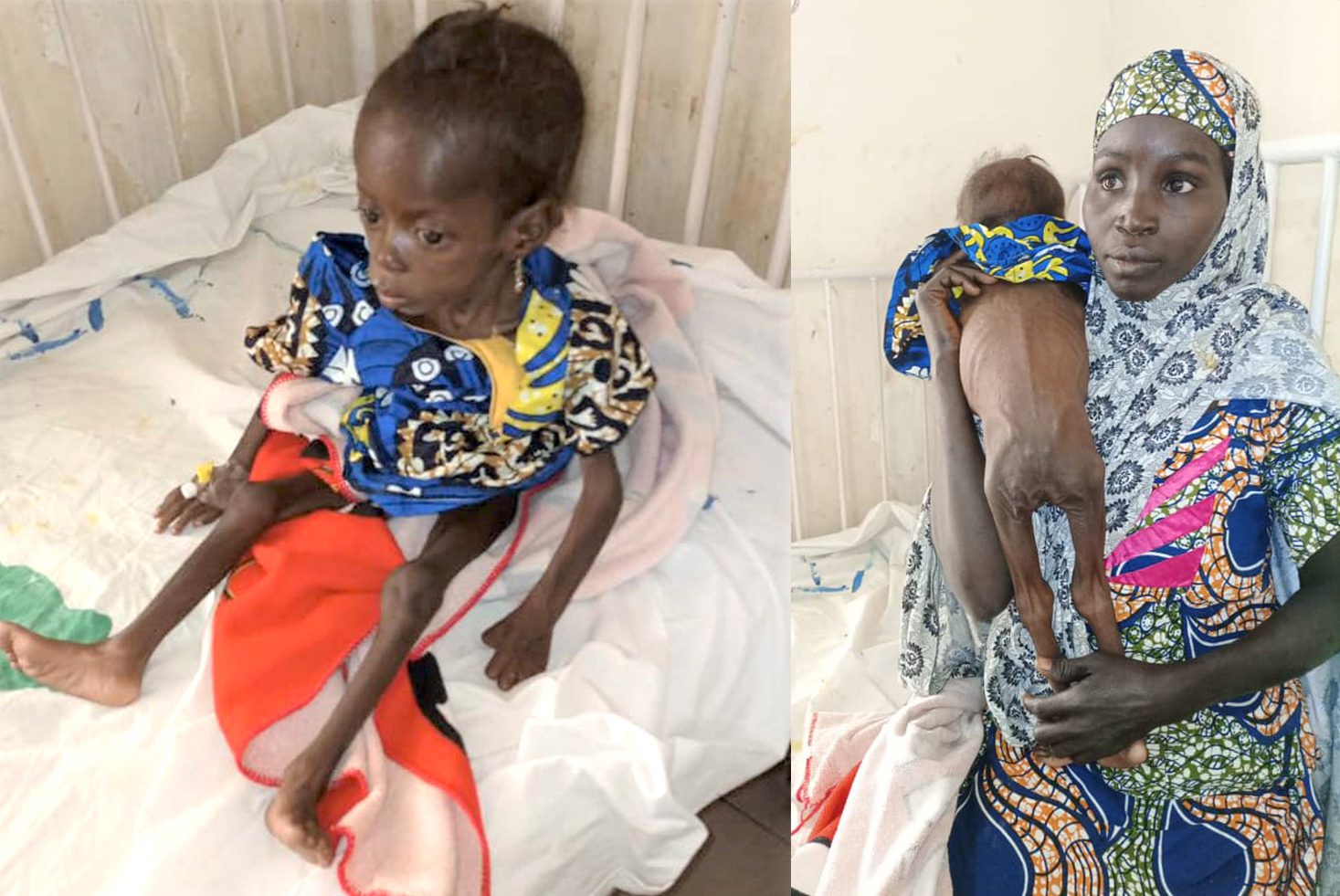
Around the world, over the course of a year, more than 3 million children die from malnutrition. That means that every 11 seconds, a lifetime of potential is lost. The good news is we already know so much about what works. A set of simple and proven nutrition interventions – prenatal vitamins, support for breastfeeding mothers, vitamin A supplementation for children, and treatment for severe malnutrition – can turn the lives of children like Adama around.
This past year, Helen Keller, with funding from the Latter-day Saints Charities, trained 36 community health workers in Adamawa, Nigeria to conduct routine screenings and monitor children 6 – 59 months of age for signs of malnutrition. Adama was one of almost 2000 children screened in just two months, and one of 28 found to be severely malnourished with complication. All of these children subsequently received critical, life-saving medical intervention at health centers partnering with Helen Keller.
Simple nutrition interventions offer new hope for children in Nigeria
After professionals noticed Adama showed signs of undernourishment, she was referred to inpatient care and remained hospitalized for five days. During her stay in inpatient care, Helen Keller financed Adama’s hospital bills and taught Ramatu how to prepare nutritious food such as tombrown, a cereal mix made from locally available protein, grains, nuts and seeds like millet, guinea corn, soya beans, groundnut, maize, and crayfish.
Adama was discharged once her preliminary complications were resolved. By the time she left, she weighed in at 11 pounds – a staggering improvement. Adama was evaluated weekly at the Community Management of Acute Malnutrition Centre to monitor her progress. By her fourth follow up visit in March 2021, she weighed more than 12 pounds, and by the ninth visit, she had reached 17 pounds. Adama is now on track to reach a healthy weight.
It’s hard to describe Ramatu’s relief: “I am grateful to Hellen Keller and your donors for saving my child.”
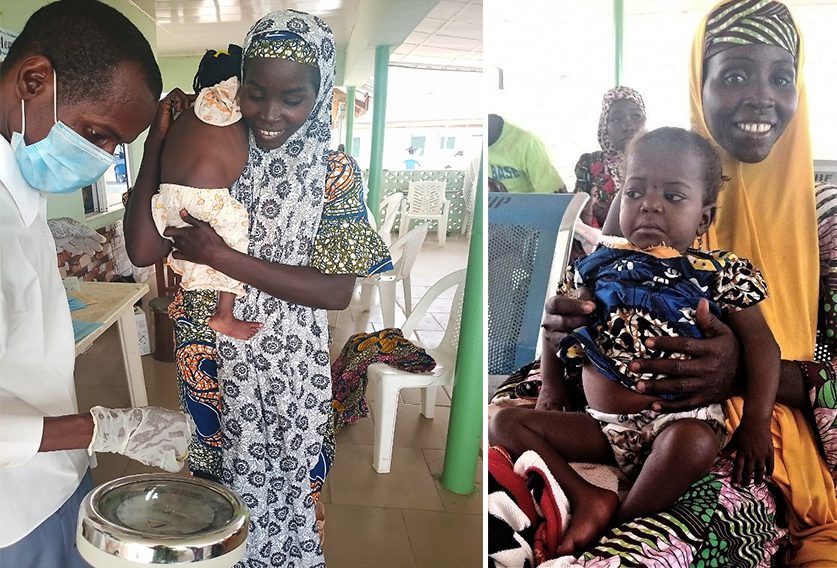
Adama’s situation is unfortunately far from unique. In recent years, the insurgency by Boko Haram, coupled with counterinsurgency by the Nigerian army and rampant attacks on communities by armed cattle herdsmen, have affected much of northern Nigeria. This has led to massive numbers of internally displaced persons, disrupted livelihood activities, reduced access to basic health and social services, and exacerbated infections, food insecurity, and malnutrition in the area. The 2017 Assessment Capacities Project Crises Profile report described food insecurity in Adamawa State in northeastern Nigeria as dire, with over 257,000 people facing some form of food crisis. The COVID crisis has only increased these conditions.
That’s why Helen Keller’s partnerships and nutrition screening work in Nigeria are so essential. Simple and cost-effective interventions can mean the difference between life and death for young children. Community health partners are stepping in to remove health barriers and allow children to have healthier, more joyful lives.
“This project is doing great work in our community. In the past, there was no active identification and referral of malnourished children. Caregivers only came to the health facility when their children were sick,” said Nora Noel, community health extension worker. “But now, house-to-house screening is being done in the community and malnourished children are identified and referred to the Community Management of Acute Malnutrition center for treatment. Otherwise, a child like Adama would not have survived.”
